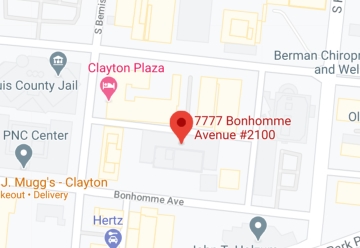
Alcohol and drug use by truck drivers is strictly controlled by federal and state regulations. A truck driver who causes a crash due to intoxication may be held liable, along with other parties, for injuries and property damage caused. If you’ve been hurt in a truck crash caused by alcohol and/or drug abuse in St. Louis, Sumner Law Group, LLC, can help. With over 50 years of combined legal experience, our attorneys will be ready to stand up and fight for you.
When you choose us to represent you, you will work directly with the attorneys handling your case. We will always be available to talk and answer questions. Learn more about how an attorney can help you pursue financial compensation after being involved in a truck crash caused by alcohol or drug use. Contact our firm today for a free initial case evaluation.
Regulations on Drug and Alcohol Use by Truck Drivers
Truck drivers are held to much stricter standards when it comes to alcohol and drugs than non-commercial drivers. A normal driver is considered under the influence if they have a blood alcohol content (BAC) of 0.08 percent. For a driver holding a commercial driver’s license (CDL), the limit is 0.04 percent. Like all other drivers, truck drivers are also prohibited from having any illicit substances in their system.
Truck drivers are further prohibited from consuming alcohol four hours prior to beginning duty or operating a commercial vehicle. Truck drivers may not have any measurable alcohol or drugs in their system while on duty or operating their truck. Truck drivers also may not possess alcohol or illicit drugs in their truck cab.
Any truck driver who violates federal alcohol use regulations is immediately suspended from duty for a 24-hour period. Truck drivers who are found guilty of driving any vehicle with a BAC at or greater than the commercial driver’s presumptive limit of 0.04 percent risk losing their CDL.
Testing for Drugs and Alcohol in Truck Drivers
Under federal regulations, all CDL drivers operating commercial motor vehicles, or vehicles with a gross weight rating of more than 26,000 pounds or that carry more than 16 passengers (including the driver), must undergo testing for alcohol and trucks. This includes all commercial truck drivers.
Truck drivers may be subjected to the following types of alcohol/drug screens:
- Pre-employment: Any driver must have a negative alcohol and drug test before an employer can allow the driver to begin work.
- Post-collision: Truck drivers are required to submit to alcohol and drug testing following any truck crash that involves death, a traffic citation or arrest resulting from someone’s injury, or a disabled vehicle. Alcohol testing must occur within eight hours of the crash, and drug testing must take place within 32 hours.
- Random testing: Employers are also required to conduct random alcohol and drug testing of their truck drivers. Drivers can even be required to submit to drug testing while home and off-duty, although alcohol testing can only occur on duty. A truck driver’s failure to promptly report for testing is considered a refusal and the equivalent of a positive test.
- Reasonable suspicion of intoxication: DOT supervisors can also direct any truck driver to submit to alcohol and drug testing whenever the driver exhibits signs of intoxication.
- Return-to-duty: Upon returning to duty after a leave or suspension, truck drivers must undergo alcohol and drug screening before being allowed to operate trucks.
- Follow-up: Truck drivers who return to duty after treatment for alcohol or drug addiction may be required to submit to at least six additional follow-up tests within 12 months by the substance abuse professional who signs off on the driver’s return-to-duty. Additional testing can be required for up to five years for drivers who refused testing or who tested positive.
Alcohol and drug testing may be conducted by urinalysis. A truck driver must immediately report to a testing center when directed to do so. In certain circumstances, a driver may be required to produce a urine sample under direct observation.
A driver has three hours to produce a urine sample. Failure to produce a sample in the absence of a medical explanation, or leaving the collection site without producing a sample, is considered a refusal of the test.
If the test comes back positive, a medical review officer will contact the driver to determine if the driver’s medical circumstances may explain the result. If none, the test will be deemed positive.
Who Can Be Held Liable After a Drunk or Drugged Truck Driver Crash in St. Louis?
After a truck crash caused by a driver under the influence of alcohol or drugs, you may be entitled to hold the driver liable for his or her negligence or recklessness. More importantly, you may also be entitled to hold the trucking company that employed the driver liable for the injuries and losses you suffered.
A trucking company that employed a drunk or drugged driver who caused a crash may be subject to liability for the driver’s negligence or recklessness. The trucking company may be held directly liable for its negligence if the driver had a history of intoxicated driving that the company ignored or failed to uncover, if the company failed to properly supervise the driver and ignored signs of alcohol or drug abuse, or if the company failed to have a random alcohol/drug testing program for its drivers.
Evidence That May Be Used to Prove Drunk or Drugged Driving
At Sumner Law Group, LLC, we may use many different pieces of evidence to prove that the truck driver who hit you was intoxicated. This includes:
- The truck driver’s alcohol and/or drug screen results
- The truck driver’s arrest or conviction for DUI
- Evidence of the truck driver’s consumption of alcohol or use of drugs prior to the crash, such as through eyewitness testimony or surveillance video of the driver using alcohol or drugs
- Physical evidence of alcohol or drugs in the truck cab, such as an open container of alcohol or drug paraphernalia
- Witness testimony regarding the driver’s operation of the vehicle prior to the crash, including drifting out of the lane or off the road or inability to keep pace with traffic
- Witness testimony regarding the truck driver’s appearance, behavior, and condition after the crash, including slurred speech, bloodshot and glassy eyes, dilated pupils, difficulty balancing or walking, or having the odor of alcohol or drugs
Compensation for Victims of Truck Wrecks Involving Drug and Alcohol Use
If you’ve been injured in a crash that was caused by a truck driver’s drug and alcohol use, you may be entitled to compensation for losses, including:
- Costs of recovery from injuries, including doctor visits, hospital bills, physical therapy, prescriptions, mobility equipment, and home renovations to accommodate disabilities
- Physical pain and emotional distress
- Loss of income from the time you spend out of work during your medical treatment and recovery from injuries
- Loss of forward earning ability if you are disabled from work due to injuries
- Loss of quality of life, such as due to physical scarring or disfigurement that may cause humiliation or embarrassment, or due to the inability to perform daily tasks or participate in activities you once enjoyed
- Property damage, including repair or replacement costs of the vehicle involved in the crash
- Loss of consortium, which may compensate your spouse or other household family members for the loss of your companionship and society due to your injuries
Under certain circumstances, you may also be entitled to an award of punitive damages from the truck driver or at-fault parties. Punitive damages are not intended to compensate you for any loss, but rather to punish the truck driver and other liable parties for their conduct and to serve as a deterrent against others engaging in similar conduct in the future.
Contact a St. Louis Semi-Truck Crash Attorney for Help Today
If you’ve been injured in a collision with a commercial vehicle in St. Louis that may have been caused by a trucker who was under the influence of alcohol or drugs, contact Sumner Law Group, LLC, today for a free consultation. A St. Louis semi-truck crash attorney can explain your legal options for holding the intoxicated truck driver and other at-fault parties accountable. Call us or contact us online today to get started.

















